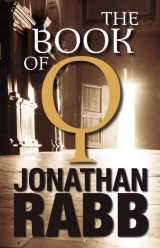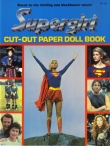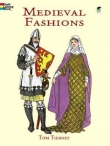
Текст книги "The Book of Q"
Автор книги: Jonathan Rabb
Жанр:
Триллеры
сообщить о нарушении
Текущая страница: 20 (всего у книги 28 страниц)
“What didn’t you tell him?”
His eyes narrowed for just a moment. “It wasn’t only one church. There were three others. Two in Germany, another in Spain. Also this morning.”
“And they think they’re connected?”
“They? Yes, the TV people think that they’re connected.”
“Why?”
“I have no idea.”
“Was there any news on the election?”
“Election?”
“The Pope.”
“Oh. Black smoke. They’ll do it all again tomorrow. What does that have to do with-”
“That’s probably your answer.” Stopping Mendravic short, Pearse added, “What better time to strike? The church preoccupied. No single authority. Catch them with their pants down.”
“For what reason?”
“It might be more obvious than you think.”
Again, Mendravic paused. “You think it has to do with your little book.”
“So do you. That’s why you didn’t say anything to your KLA friend.”
Another pause. “All right,” he admitted. “Then what, exactly, is in that book that would explain all of this?”
It was now Pearse’s turn to wait. “I wish I knew, Salko. I wish I knew.”
Kleist glanced over his shoulder one last time. Highly unlikely that anyone had followed him down here, but best to be sure. An endless assortment of pipes-all wrapped in plaster-ran along the low ceiling, the hum of a generator and furnace somewhere off in the distance. Otherwise, the basement of the Domus Sanctae Marthae lay in silence.
Above him, a hundred cardinals waited in their rooms, relaxing or praying, or doing whatever it is that cardinals do between conclave votes and dinner. Tonight, he had no intention of disturbing them.
Except for one.
Checking the building schematic for perhaps the fifth time in the last minute, he came to a small door located low on one of the walls, the hatch no more than two feet square. Fixed into its lower left-hand corner waited a simple lock, brand-new from the shine. Kleist pulled a ring of keys from his pocket, slipped one into the slot, and pulled back the door. Dropping to his knees, he angled his flashlight up and peered through.
No more than four feet across, the opening extended up beyond the reach of the light, equally distant to both his left and right. It was as if a four-foot wedge had been yanked from the center of the building, leaving this hollow tucked deep within. The light caught on a group of pipes perhaps twelve feet above him, open space above that, then another set of pipes twelve feet above that, so on and so on, the crude demarcation of the floors of the building. Kleist slid himself through and stood, pulling the door shut. He then flattened himself against the cement-block wall and again checked the schematic. The flashlight found what he was looking for off to his left-the iron rungs of a ladder built directly into the wall. Not an easy climb, but certainly manageable.
When he reached the “fourth floor,” he stepped out from the ladder and onto the piping, using his hands along the walls to keep his balance. Flashlight in his mouth, he counted off four heating ducts before bringing out a razor knife from his pocket. At the fifth, he sliced an opening into the aluminum, then tossed both knife and flashlight into the vent and hoisted himself up.
Fifteen minutes later, he sliced a second hole for his exit. This one dropped him down into another narrow passage, Sheetrock having replaced cement. He aimed the light to his left and slowly traced it along the wall. About a third of the way back to him, the light flashed momentarily. It had caught on something. Quickly, he made his way to the spot. A hinge. Two feet below it, a second. He placed his flattened palm on the wall and pushed.
It gave way with surprising ease. Again on his knees, Kleist ducked his head under, then pulled the rest of himself through. He was met by a cushioning of wall-to-wall carpeting beneath him. To his left, a bed. He stood and shut the door.
“You’re late.”
Kleist turned to see Cardinal von Neurath seated in a chair across the room. It had been von Neurath who had discovered the approach to the room in the plans. Nothing easier than to install a door and arrange the room assignments.
“Yes, Eminence.”
“Keep your voice down. These walls are paper-thin.”
Kleist nodded and moved toward the cardinal. A chair waited for him; he sat.
“I want one of those children taken. And I want it on the news quickly.” Von Neurath saw the momentary confusion on Kleist’s face. “Doesn’t matter which one. Any of them will send the message to the rest. I need those six votes, and I need them tomorrow.”
“The news? How would that-”
“We’re sequestered, Stefan. We’re not sealed in a vacuum. We all managed to hear about this morning’s events in Bilbao and Gottingen, and whatever that place is called near the Yugoslav border. You take the child, we’ll hear about it.” He let the words sink in. “Those weren’t supposed to go off for another few days, were they?”
“No.”
“What happened?”
“Miscommunication.”
Von Neurath waited before answering. “Get word to Harris. He has a tendency to overreact. Tell him, nothing changes.”
Kleist nodded.
“If for some reason the vote doesn’t come through tomorrow, I want you to leak the Syrian link to the bank. And keep Arturo’s name at the forefront.” Even more pointedly, he added, “And remember, nothing about this to the contessa or Blaney. You don’t have to understand why.”
Another nod.
“Now, where’s our priest?”
“Most recent contact was last night. He phoned.”
“That was good of him.” The irritation lasted less than a second. “Does he have the ‘Hodoporia’?”
“He will in a few days.”
“I see.” Von Neurath saw the moment’s hesitation in Kleist’s eyes. “What?”
“At the refugee camp-he says four men were tracking him.”
“What four men?”
“We don’t know.”
“You believe him.”
“Yes.”
“Do we know who they are?”
“No.”
“Excellent.” The word was laced with sarcasm. Another pause. “I want this cleared up by tomorrow. If he doesn’t have the ‘Hodoporia’ by then, find him, take the book from him, and find it yourself. No more distractions. Do you understand?”
“Yes, Eminence.”
“Good.” Von Neurath stood. “Then unless you have something else …” Kleist shook his head. “They’ll be coming around to call us for dinner soon. They’re very keen that we all eat together in silence. Given the food, I can understand why.”
Kleist wasn’t sure if he was meant to smile or not. Instead, he simply nodded and stood.
“Oh, which reminds me,” added von Neurath. “Send Mr. Harris my congratulations on his recent approval rating. Make it an egg. A hard-boiled egg. He’ll understand.” He nodded Kleist toward the tiny door.
Two minutes later, Kleist was crawling his way back through the heating duct, a constant trickle of sweat dropping from face to aluminum.
Hard-boiled egg.He wondered if he’d somehow missed something. Or maybe it was simply the cardinal’s way of putting him in his place; it wouldn’t have been the first time. Whatever he had meant, though, Kleist was sure of one thing.
The priest would be dead within the day.
At least now there was no confusion on that front.
“Nige … you’re sure we can’t get you some dessert?”
Nigel Harris smiled to the man across the table from him. “I’m fine. Thank you.” Three others sat across from him, as well. A lunch meeting engineered by Steve Grimaldi’s office, very “developmental,” high on the “no turnaround time,” given Harris’s current “breakthrough” status. The colonel was beginning to understand the advertising industry’s lingo, although he couldn’t be sure if it was the industry or Grimaldi himself, the latter more than happy to toss whatever happened to be running through his mind into the conversation. That notwithstanding, the rest of his staff seemed to understand his every word-everyone “on the same page”-especially when they took their little breaks to “detox” the details.
The lunch meeting had started at eleven. It was now nearly one.
While the plates were being cleared, Harris glanced out the window. He’d never gotten his LA geography down, not sure if he was actually in what they considered downtown. From the thirty-eighth floor, it certainly looked like a downtown, though with conspicuously few people on the streets. Maybe the trendy restaurants weren’t in this neck of the woods, he mused. Or maybe in-house catering had just become too good across the board. From what he’d just had to suffer through-something “blackened” beyond hope-he was guessing the former.
“I think you’re going to like what we’ve put together, Nige. It’s very early-”
“Developmental.” Harris nodded.
“Exactly. So we’re not sure just exactly how we need to play with it. But we want to get them out there quick.” Grimaldi nodded to one of his associates; she pressed a button at the center of the table and a large TV screen lowered from the ceiling at the far end of the room. A second button, and the shades began to close. Harris turned to Grimaldi and raised his eyebrows as if duly impressed. The adman seemed to preen. The lights dimmed. “Your group’s getting a lot of press right now, Nige, and we thought it might be nice to pick up on that newsy quality. An election kind of thing. Get people in your camp. This is one possibility. And don’t be afraid to tell me exactly how it makes you feel.”
Grimaldi pressed yet one more button, and the screen came to life, black at first, a counter running in white numbers along the bottom edge, the words “Nigel Harris Promo 1” next to it. When the counter reached ten seconds, the center of the screen filled with one of the quotes from a recent article on the alliance. The now-familiar voice from every movie preview produced in the last five years began to read the text in slow, sonorous tones.
“Its vision is for our future…. Its message is clear…. It’s time we put our faith back into something we believe in….”
A classroom of children filled the screen, eleven– and twelve-year-olds, a perfect hodgepodge of ethnic and racial backgrounds, all smiling faces, the word Tolerance written in large letters on the board, the children clearly in the midst of a discussion. The screen darkened, another quote. The voice returned.
“Our children need to understand what ties them together, not what separates them. And faith is that answer.”
Next, an equally Stepfordesque scene appeared, people on a generic Main Street, again ample ethnic diversity, ideal families strolling along, stopping to chat with one another, three separate churches in the background-one seemingly a synagogue, the lines, though, too blurred to make it out with any detail. In some sort of high-tech special effect, the three buildings began to grow into one another, the happy little community watching the transformation. No quote this time. Just the voice.
“It’s time to build an alliance of faith, where religious differences fade in favor of a wider spiritual commitment.”
Images of Harris, several other notable members of the alliance, and an American flag peppered the screen, the final image that of a field somewhere in the Midwest.
“The Faith Alliance. It’s our bridge to the next millennium.”
The screen went black, the lights came up. Harris turned to Grimaldi, who was standing by the far window. Grimaldi was staring directly at him, a birthday-morning grin lining his face.
“I see,” said Harris, trying to find the words. “I’m not exactly sure that’s what we talked about. It was all rather … over-the-top.”
The smile dipped momentarily. “Sure it was. But there’s good over-the– top, and there’s bad over-the-top. Which one do you mean, Nige?”
“The one that says that that advertisement won’t be seen by anyone outside this office.” Harris sensed a slight elevation in the tension of the room. “Exactly how I feel, Mr. Grimaldi? What I just saw was insipid, mawkish, and says nothing about the alliance.”
“Don’t underestimate insipid and mawkish,” said Grimaldi, the first hint of something savvier beneath the veneer of the hip salesman. “They sell well.”
“I’m sure they do, but I don’t believe we’re sellinganything. We want to inspire. There’s a considerable difference there. Might I ask what happened to the segments I filmed? I thought they made my position quite clear.”
“Fair enough.” Grimaldi nodded to one of his associates. “Let’s call that a first stab.” Again the lights dimmed. The second promo.
The image on the screen this time was far less polished, the angle of the camera slightly skewed. A young man, maybe in his mid-thirties, sat on a park bench, elbows on knees, chin propped on his hands. The camera shifted around him several times, close-up, then back, more odd angles, before it stopped on a medium shot. The man seemed to be looking at something in the distance, but the camera stayed on him. The voice-over began, this one without the husky pomp.
“Time was when I wasn’t sure what to expect for his future.”
A quick cut to a group of boys playing in the park, again choppy angles, long and short shots interspersed in rapid sequence.
“I thought about the usual stuff, high school, college. Get himself a job. And that one day he’d be out here, watching his boy, wondering the same things. The same endless cycle. And I had to ask myself, Is that all I can give him?”
The man stood and began to walk toward the boys. He stopped by a tree and watched as his son tore around with the ball, the other boys giving chase. The man smiled.
“Not by a long shot.”
The man moved out from under the tree, his son catching sight of him, tossing the ball back into the melee before racing up to his father’s side. As the man knelt down to straighten his son’s jacket, the voice-over continued.
“If you’ve got some of those same questions, think about the Faith Alliance. I did. It’s where we can make their future together.”
The shot traced up to the sky, then back down, now the vista a wide beach, a far shot of Harris walking, pants rolled up to the ankles, his own two boys scampering in the tide just ahead of him. The camera moved in.
“I’m Nigel Harris, director of the Faith Alliance. If you’re in need of something to put genuine meaning into your life, and the life of your family, consider joining us.”
The camera followed Harris’s glance to his boys.
“It’s their future. Don’t deny them a personal relationship with faith.”
The camera pulled back as Harris darted over to his sons and began to splash water at them; they, in turn, splashed back.
Fade to black and the words “The Faith Alliance. Our bridge to the next millennium.”
Fade-out.
The lights came up.
Grimaldi remained by the window. “I told you insipid and mawkish sell,” he said as he moved back to his chair. “It’s just how you package them.”
Harris turned to him as he sat. It was only then that he realized how clever Grimaldi had been. The whole morning had been a prelude to this moment, the mindless jargon bandied about at lunch, the first promo. All designed to let this moment have its full effect. Harris now understood why Grimaldi had the reputation he did.
“Yes, I can see that,” he answered.
“So this one’s more to your liking, Colonel Harris?”
“Call me Nige.” He smiled. “Yes. Yes, it is.”
“Good. Then you’re going to love this next one.”
Everything had quieted down by dinner. They had taken the body to a small house at the end of the village, the home of the local hohxa. There, it would be bathed and cleaned, prepared for burial according to strict Muslim custom, Pearse’s last rites washed away with the rest of the worldly taint on the boy’s soul. They had managed to keep Ivo preoccupied during the somber processional to the hohxa’shouse, the other children of the village not so fortunate, essential participants in the ancient ritual. Pearse hadn’t asked; Mendravic wouldn’t have been able to explain.
The leader of the failed raid continued to ignore Pearse throughout the meal, no doubt silently blaming him for the morning’s debacle. Catholic priest. Catholic church. To him, they were one and the same. Skewed logic aside, he did manage to show a considerable warmth to Ivo and Petra, doing his best to keep the dinner conversation lively, the day’s tragedy left for another time. Pearse kept quiet, happy to watch the interaction.
What quickly became clear was just how smart a little boy Ivo really was. Polite to the end, he showed no hesitation in making his points, less patience for anyone who treated him like a child. And always with something of Petra’s swagger in the way he handled his confrontations. In fact, more often than not, it was Petra herself who was on the receiving end.
“That’s not true, Mommy,” he said. “Why should we care about the Serbs when they don’t care about us?” There was always a hint of the parrot in what he said, little phrases that he’d heard from Salko or his mother-mangled just a bit-but always injected at just the right moment. It wasn’t necessarily what he said, but how he said it that allowed his cleverness to shine through. Even when Petra was on the defensive, Pearse sensed her absolute pleasure in Ivo’s little jabs.
“Well, maybe that’s why we should worry about them even more,” she answered.
Somewhere along the way, he’d busied himself with a wedge of bread, rolling pieces of it into tiny balls. Preoccupied or not, Ivo managed to keep up. “No, because Salko said that’s what they want. And we’d be giving them what they want, and we can’t do that.”
“Like what?” she pressed, the rest of the table watching as the little boy kept his eyes fixed on his handiwork, every once in a while a bread ball popping into his mouth.
“Like letting them know we’re afraid. And we aren’t.” Another piece into his mouth.
“Never let them know,” chimed in the raid leader with a smile. “Even if you are, just a little.”
Ivo looked at the man, hesitated, then nodded, a very earnest nod for a little boy. And just as quickly, he was back to the bread.
“Is he always like this?” the man asked, his smile wider still.
“No,” answered Petra. “Sometimes he can get pretty serious.”
The entire table erupted in laughter, Ivo continuing with his very intricate bread work. When he realized that everyone was looking at him, he suddenly became embarrassed. Sensing the moment, Petra drew him in close, kissing the top of his head as he buried himself deep in her side.
“It’s just that they all think you’re as wonderful as I do, Ivi. Must be terribly hard having everyone think you’re so wonderful.”
That only made it worse. Except that perhaps Ivo was enjoying the attention more than he was letting on. And Pearse seemed to enjoy that just as much. The little showman, he thought. Why not? He was, after all, Petra’s boy.
Pearse wasn’t that surprised, then, when, an hour later, Ivo appeared at the door to his room, no less bold than at the table.
“Hello.”
Pearse looked up. He’d been alone on his bed with Ribadeneyra since dinner, the five-line entries no closer to unscrambling than when he’d started. He had managed to tease out some connection among the rest of the entries-even without the final piece to the puzzle-a pattern beginning to emerge, when the little voice broke through.
“Hello,” he answered, laying the pages on his pillow. Ivo remained by the door, his courage taking him only so far. “You can come in, if you want. I won’t bite.”
With a little nod, he pushed open the door, sized up the room, and slowly wandered in, not quite tall enough to see over the top of the chest of drawers. When he was satisfied, he turned to Pearse, one hand lazily running along the edge of the bed.
“Do you come from America?”
Pearse smiled. He’d expected a thousand other questions, not the one, though, most obvious to a seven-year-old boy. “Yup.”
“I knew it,” he said, as if having uncovered some great mystery. “I asked Mommy. She said I should ask you.”
Again, Petra was letting him in. He wasn’t quite sure what he had done to merit it. “How’d you know?”
“The way you talk.” He started to roam again, his fingers lighting on the backpack. “What’s in here?”
“Nothing much.”
“Can I open it?”
“Sure.”
He watched as Ivo struggled with the zipper, a giddy anticipation of the unknown within. Or at least of something American. His disappointment on unearthing nothing more than a change of clothes and a few odds and ends was equally intense.
“Sorry,” said Pearse. “No chocolate.”
Ivo snapped his head up, the look now one of astonishment.
“Isn’t that what you were looking for?” asked Pearse.
A coy smile crept across the boy’s face. “How’d you know that?”
“Oh, I have my ways.” Pearse smiled.
For a moment, it looked as if Ivo might not let it go at that. Then, just as quickly, he was on to his next topic. “Did you come from America last night?”
“Actually, I haven’t been to America for a couple of years.” Another flash of disappointment. “Have you ever been to America?”
The look now turned to one of utter disbelief, less to do with the possibility than with the fact that Pearse had even thought to ask. “No! I know only one person who’s been to America. Except for you.”
“Really?” Pearse knew where he was going, but couldn’t hold himself back. “Who?”
“My father.”
It was said with such confidence, such an affinity, as if he had just spoken with him before coming into the room. The connection so clear. Again, he had to thank Petra for that.
“And where does he live?” asked Pearse. A look of confusion etched across the young face. “America. Like you.”
Pearse nodded. Obviously, his geography had its limits. Not wanting to lose him entirely, Pearse reached under the papers and pulled out his baseball. “Here.” He tossed it to him.
Ivo caught it, no hesitation.
“Nice catch,” said Pearse.
“I’m pretty good.” He examined the ball very closely. “What kind of ball is this?”
“It’s a baseball,” said Pearse.
Ivo’s eyes lit up. “A baseball! From America?”
From Rome, but close enough. “I know you were hoping for chocolate, but-”
“No, no. This is great. Can I play with it?”
“You can keep it, if you want.”
If possible, Ivo’s eyes grew wider still. “You mean … it’s mine?”
“Well, I might ask you to play catch with me sometime.”
“You can play anytime you want.”
“Thanks. Maybe sometime you could go to America with me and see a game.”
It was almost too much for him. “America?” A hint of hesitation crept in. “And Mommy, too?”
“Of course. And don’t forget Salko.”
Before Pearse had finished, Ivo was running back to the door, shouting to his mother. Within a minute, he was back, pulling Petra by the arm. Once again, her expression was far from what Pearse expected: not strictly a glower, but as close as she dared with Ivo looking directly at her.
“And Salko, too,” he bubbled.
“Yes, I heard you, sweetie,” answered Petra as she stared at Pearse.
“That’s very nice of him.”
Pearse smiled. “I just said-”
“Yes, I’m sure you did.”
Pearse wasn’t sure, but he suspected this was part of a family dynamic he’d never had occasion to experience until now. Something reserved for mommies and daddies. Even on the short end of things, it was awfully nice, more so to see Petra struggling with it as well.
Not sure what protocol demanded, he fell back on the slow nod.
“You have to go to sleep,” she said to forestall any further discussion. At once, Ivo launched into the ancient bargaining ritual, all of it to no avail. As he mopingly made his way to the door, he turned to Pearse and, instead of a simple “Good night,” shot a finger at him and winked. It was enough to provoke a moment’s giggle before a quick dash out the door.
Laughing, Pearse asked, “What was that?”
“Mel Gibson did it in a movie. He thinks it’s how all Americans say good night.” She remained by the door.
“Isn’t Mel Gibson Australian?”
At last a smile. “Don’t tell him that.”
A silence settled on the room. He thought she might go; instead, she moved toward him.
“So, have you figured out where this book of yours is in Visegrad?” she asked pointing to the papers.
“No clue.”
“So you have no idea whereit is, you don’t really know whatit is, and you have no clue whowas chasing after us.”
“Right. But aside from that, I’m really close.”
She laughed and sat down next to him. “Maybe another set of eyes would help.”
“Sure. How’s your Latin?”
“Oh,” again more playful, “not so good.”
“Then maybe I’ll have to stick with the pair I have.”
“They’ve always been a pretty nice pair.”
For several seconds, neither of them said a word.
“Was I just flirting with a priest?” she finally said.
“I don’t know. Question is, Was the priest just flirting with you?”
She was about to answer, when Mendravic stepped into the doorway.
“Ian, have you-Oh, sorry.”
“Don’t be sorry,” they answered in unison.
A bit perplexed, Mendravic answered, “All right … I won’t be. But if you two-”
“We don’t,” they said again as one.
“Okay,” he replied, still not sure what he had just walked in on, though happy enough to let it go. “Did you tell him?” he asked Petra.
“Oh, no,” she said. “I was just about to-”
“Ian, have you seen any of the papers?” Mendravic asked.
“Sure,” he said. “I have them right here. What’s this all about?”
“No, the newspapers, the ones they drove up from Novi-Pazar.”
“I didn’t know they had any. No. Why?”
“And the last time you saw a paper was …”
“I don’t know, five, six days ago. Why?”
“Petra pointed it out to me. Maybe you should take a look.”
Two minutes later, the three of them stood at the kitchen table, eight to ten major European papers waiting on top. The KLA might have been provincial in their worldview, but at least they were more sophisticated when it came to the news they read. Evidently, they wanted to see what kind of an impact they were having outside their own little universe.
“I hadn’t seen one in almost a week, either, until Petra showed me these,” Mendravic said as he began to sift through them. “So I can’t tell you how long these have been running.” He pointed to the lower right-hand corner of the nearest paper, the Frankfurter Allgemeine. A small box was set off from the columns, the look of an advertisement, except, for some odd reason, the language inside was English. Before Pearse could read, Mendravic pulled over several other papers-French, Italian, Greek-noting the identical box in each, and always the same language: English. Pearse read:
Whatever was on Athos, you have friends, Father. In Rome.
Day or night: 39 69884728
Every paper the same. Pearse turned to Mendravic. His phone was at the ready; Pearse took it and dialed. Both men angled their ears to the receiver and listened.
It picked up on the second ring. “ Pronto.”
Pearse wasn’t sure what to say. The line remained silent. He looked at Mendravic. Finally, in English, Pearse answered, “I saw your ad.”
“Yes.” The accent was Italian.
“And I’m calling.”
“We’ve had many calls. I need a name.”
A number in a newspaper. People with nothing better to do than to dial it. Pearse understood. Realizing why the man needed his name, however, was hardly a rationale for giving it to him.
“I’m not sure I’m comfortable doing that.”
“Then we can’t help you. We already know the name we’re looking for.”
True, he thought. Even so. “I’m still not comfortable.”
“As I said, then we can’t help you.”
Pearse waited. Another glance at Mendravic. The Croat shrugged. “Photinus,” Pearse said.
There was a pause on the line. “The monastery on Athos.”
“The Vault of the Paraclete.”
Another pause, this one far longer than the others. A decision was being made. “Father Pearse?”
He didn’t know whether to feel relief or anxiety. He was about to answer, when Mendravic suddenly pulled the phone from his ear and hung up.
“What are you doing?” Pearse asked, stunned.
“Do you realize how stupid we both are? I can’t believe I only thought of it now.”
“Thought of what?”
“Think, Ian. What’s the simplest way to find out exactly where you are?”
Pearse shook his head.
“A trace. They were keeping you on the line to pinpoint your location Very easy to do, even with satellite hookups. I can’t believe I was so stupid.”
“But they sounded as if they were trying to help.”
“I’m sure they did.”
Pearse stood there, not knowing what to think. Of course Salko was right, but then who would these people be?
The image of the four men from Kukes instantly fixed in his mind. Especially the one who had come after him, the look in his eyes just before Salko had attacked. No threat. No menace.
But if they knew about Athos, why go after him? Why not go after the Manichaeans directly? It didn’t make any sense.
“Do we need to get out of here?” he asked, unwilling, for the moment, to focus on anything but the immediate threat.
“I think we caught it in time,” Mendravic answered. “But I don’t know. We could go to Visegrad, if you want.”
“And sit there?” Pearse said, his mood souring. “I still have no idea where the ‘Hodoporia’ is.”
“The what?” asked Petra.
“The thing we’re looking for. The parchment.” The phone call had evidently taken more of a toll on him than he cared to admit. “I haven’t … gotten it. I haven’t broken the code. And I don’t know if I can. Look, there’s a woman in Rome-”
“All right,” said Mendravic, trying to keep Pearse from sinking deeper into frustration. “We stay here tonight. We go tomorrow. Maybe … I don’t know. I could take a look. You could show me how it works….”
“Oh, that would be good,” Petra piped in, also trying to lighten the mood. “I’m sure you’d be a lot of help.”
“I’m just suggesting-”
“He’s trying to move forward, Salko, not back.”
“Your confidence is overwhelming. I’m sure you-”
“I’ve already been dismissed,” she said. “I couldn’t pass the Latin test.”
“There’s a test?” he answered.
Listening to the two of them was enough to snap Pearse out of his funk. “I get it. You’ve made your point.”
“Good.” Mendravic nodded.
“Look, I’ll … figure it out. I have to figure it out.”
“I don’t think anyone was worried about that,” she said.
Mendravic put his hand to Pearse’s neck; he squeezed once. “My guess is, you get to Visegrad, and everything falls into place. Trust me. You’re friend will be fine.”
Pearse nodded. Why not? The alternative wasn’t worth thinking about.
The contessa had been right. The congregation seemed primed to hear him speak. Harris had spent the better part of the last hour listening to what many considered the preeminent Pentecostal preaching in the South. Archie Conroy and his Ministry of Peace. Five thousand strong had gathered in the largest amphitheater he had ever seen. Another 120,000 had tuned in for the early-morning services. That the contessa had set it all up on such short notice had astounded him. Thirty million on deposit was one thing. Having one of the most powerful ministries in the States at his beck and call was another. Conroy hadn’t flinched. If the contessa was involved, Harris had carte blanche. He was learning not to underestimate her.








